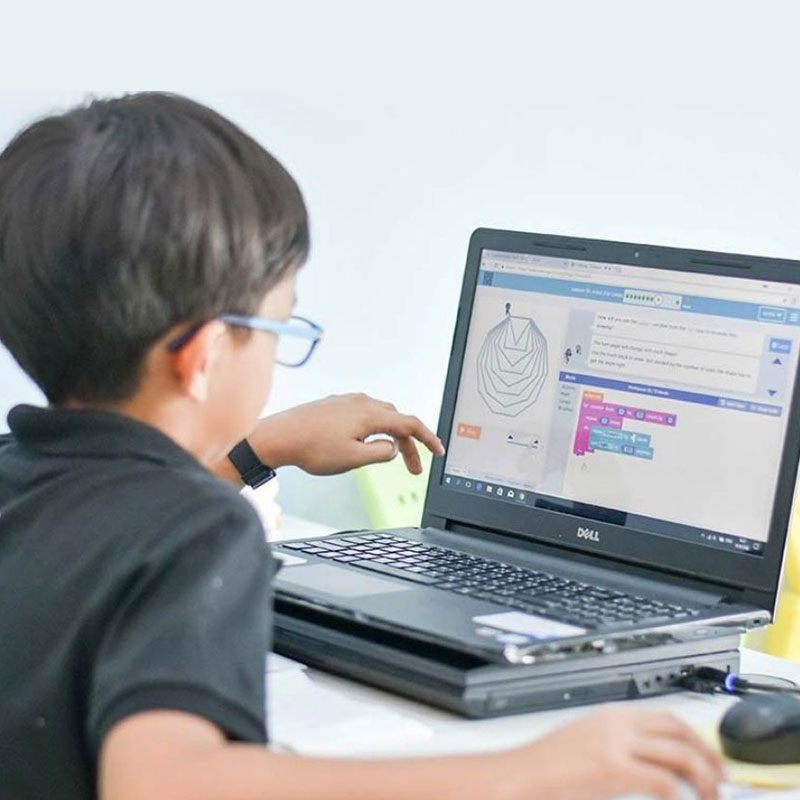Why should students learn to code
Coding enables students to become independent citizens in a technology-driven world. Learning to code helps them understand the digital world and become better prepared for it. The objective behind learning to code is no longer restricted to becoming a skilled coder and meeting the job market’s needs – it enables students to progress in all aspects of life.
Coding can be made fun and interesting for younger students (ages 5 to 7 years) with Block Languages (Visual Programming). In Block languages, they don’t have to write codes, instead – they have to drag-and-drop coding instruction “blocks”. It is an easy and engaging way which allows students to learn how to design and develop their own games, apps etc through visuals.
After mastering Block Languages, students can advance to Text-based Languages (Python, Swift, JavaScript, Ruby, Java, C++, PHP) which are traditional programming languages used by professionals.
Here’s how learning to code is beneficial for students.
Enables computational thinking
Learning to code develops computational thinking in students. It encourages them to express problems and their solutions in ways that a computer could also execute. An essential 21st Century skill, computational thinking helps students develop and employ strategies for understanding and solving problems in all areas.
Promotes learning by doing
Students learn best by exploring and doing. When students begin to code and create apps, games, websites – it gives them the opportunity to interact with their environment to adapt and learn. Active engagement involves deep learning, making mistakes; it encourages students to learn from the mistakes and come up with better solutions in future.
Develops problem-solving skills
The ability to code gives a new perspective to problem-solving. When coding, students need to keep trying in different ways until the problem is fixed. It equips students with the ability to stick with a problem and work on finding a solution. Students learn to apply problem-solving skills to real life situations.
Makes Math more fun and engaging
It is believed that students interested in coding should develop strong math skills. However, it turns out the reverse may also be true – coding can help students build math skills and make learning Math more interesting. Teaching students how to code involves applying math concepts; it helps students develop Math skills without even noticing them and while having fun which in turn improves their academic performance.
Nurtures creativity
Creativity lays the foundation for innovation, ingenuity, and leadership – it improves the ability of students to connect existing ideas with new solutions, approaches, and concepts. Students get the platform to create apps, websites & games with coding which makes their screen time productive and transforms them from consumers of technology to creators of technology.
ICT 360 provides NEP aligned, STEM accredited ICT curriculum with ready-to-use content, design and computational thinking approach to projects as well as interdisciplinary learning material on an online platform that caters to today’s relevant technologies and future skills requirements. It is designed to help teachers improve their instructional practices with 21st century teaching skills through train-the-teacher program, build a strong foundation to empower students with the ability and skills to design & create amazing things on their own in a fun & engaging environment, excel in academics and prepare them to be industry- and career-ready.
With 50+ partner schools across India, it aims to empower students with creativity, problem-solving, design and advanced tech skills from an early age. These skills are essential for future job roles like AI & ML Specialist, Game Designer, Graphic Designer, Software & Applications Developer, Animator, Robotics Engineer, Data Analyst, and IOT Specialist.

